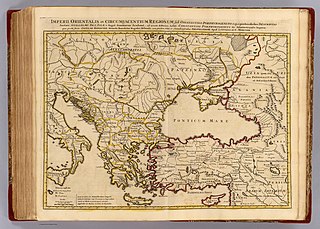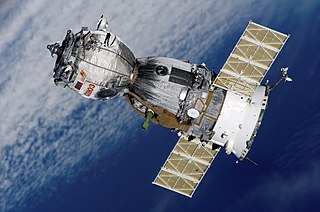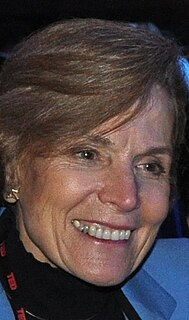
Sylvia Alice Earle DSc is an American marine biologist, explorer, author, and lecturer. She has been a National Geographic explorer-in-residence since 1998. Earle was the first female chief scientist of the U.S. National Oceanic and Atmospheric Administration, and was named by Time Magazine as its first Hero for the Planet in 1998. She is also part of the group Ocean Elders, which is dedicated to protecting the ocean and its wildlife.

Baruch Samuel Blumberg — known as Barry Blumberg — was an American physician, geneticist, and co-recipient of the 1976 Nobel Prize in Physiology or Medicine, for his work on the hepatitis B virus while an investigator at the NIH. He was President of the American Philosophical Society from 2005 until his death.

The natural environment encompasses all living and non-living things occurring naturally, meaning in this case not artificial. The term is most often applied to the Earth or some parts of Earth. This environment encompasses the interaction of all living species, climate, weather and natural resources that affect human survival and economic activity. The concept of the natural environment can be distinguished as components:
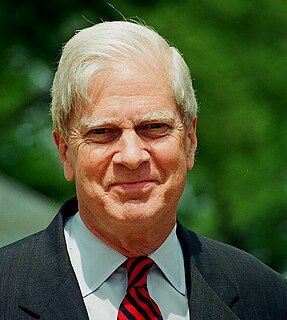
James Hadley Billington was a leading American academic and author who taught history at Harvard and Princeton before serving for 42 years as CEO of four federal cultural institutions. He served as the 13th Librarian of Congress after being nominated by President Ronald Reagan in 1987, and his appointment was approved unanimously by the U.S. Senate. He retired as Librarian on September 30, 2015.

Marilynne Summers Robinson is an American novelist and essayist. Across her writing career, Robinson has received numerous awards, including the Pulitzer Prize for Fiction in 2005, National Humanities Medal in 2012, and the 2016 Library of Congress Prize for American Fiction. In 2016, Robinson was named in Time magazine's list of 100 most influential people. Robinson began teaching at the Iowa Writers' Workshop in 1991 and retired in the spring of 2016.

Atlas V is the fifth major version in the Atlas rocket family. It is an expendable launch system originally designed by Lockheed Martin, now being operated by United Launch Alliance (ULA), a joint venture between Lockheed and Boeing.

World Environment Day (WED) is celebrated on the 5th of June every year, and is the United Nation's principal vehicle for encouraging awareness and action for the protection of our environment. First held in 1974, it has been a flagship campaign for raising awareness on emerging from environmental issues to marine pollution, human overpopulation, and global warming, to sustainable consumption and wildlife crime. World Environment Day has grown to become a global platform for public outreach, with participation from over 143 countries annually. Each year, WED has a new theme that major corporations, NGOs, communities, governments and all celebrities worldwide adopt to advocate environmental causes.

The Third Ward is an area of Houston, Texas, United States that evolved from one of the six historic wards of the same name. It is located in the southeast Houston management district.
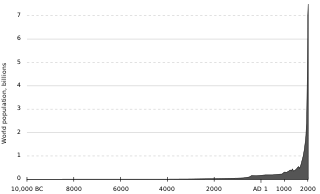
Human overpopulation is when there are too many people for the environment to sustain. In more scientific terms, there is overshoot when the ecological footprint of a human population in a geographical area exceeds that place's carrying capacity, damaging the environment faster than nature can repair it, potentially leading to an ecological and societal collapse. Overpopulation could apply to the population of a specific region, or to world population as a whole.

Stanley Earl Nelson Jr. is an American documentary filmmaker and a Macarthur "genius" fellow known as a director, writer and producer of documentaries examining African American history and experiences. He is a recipient of the 2013 National Humanities Medal from President Obama. He has won three Primetime Emmy Awards.

Lucky Lake formerly known as Devil's Lake, is a village within the Rural Municipality of Canaan Rural Municipality No. 225, in the province of Saskatchewan, Canada. Lucky Lake had a population of 289 in the 2016 Canada Census,. The Village is located at the junction of Highway 42, Highway 45 and Highway 646 approximately 90 km north-east of Swift Current, Saskatchewan.

Al Gore is a United States politician and environmentalist. He is the former Vice President of the United States (1993–2001), the 2000 Democratic Party presidential nominee, and the co-recipient of the 2007 Nobel Peace Prize with the Intergovernmental Panel on Climate Change. He has been involved with the environmental activist movement for a number of decades, and has had full participation since he left the vice-presidency in 2001.
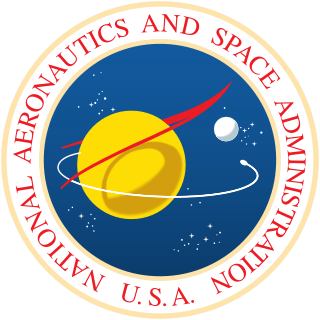
The National Aeronautics and Space Administration is an independent agency of the United States Federal Government responsible for the civilian space program, as well as aeronautics and aerospace research.
The International Hydropower Association (IHA) is a non-profit, international organisation and membership association representing the global hydropower sector. IHA has members in more than 80 countries, including over 100 corporate and affiliate members working across sectors such as electricity generation, water management, construction, engineering and related industries. IHA also partners with international organisations, research institutions, governments and civil society. The association's mission is "to advance sustainable hydropower by building and sharing knowledge on its role in renewable energy systems, freshwater management and climate change solutions".

The World Wide Fund for Nature (WWF) is an international non-governmental organization founded in 1961, working in the field of wilderness preservation, and the reduction of human impact on the environment. It was formerly named the World Wildlife Fund, which remains its official name in Canada and the United States.
One Health is "the collaborative efforts of multiple disciplines working locally, nationally, and globally, to attain optimal health for people, animals and our environment", as defined by the One Health Initiative Task Force (OHITF).
Findmypast is a UK-based online genealogy service owned, since 2007, by British company DC Thomson. The website hosts over 4 billion searchable records of census, directory and historical record information. It originated in 1965 when a group of genealogists formed a group named "Title Research". The first internet website went live in 2003.

The Interfaith Center for Sustainable Development (ICSD) is a nonprofit organization. Its projects promote inter-religious cooperation on environmental sustainability and involve religious leaders, seminary students, and communities in several countries. Founded in 2010, ICSD is based in Jerusalem.

The People's Climate March (PCM) was a large-scale activist event orchestrated by the People's Climate Movement to advocate global action against climate change, which took place on Sunday, September 21, 2014, in New York City, along with a series of companion actions worldwide, many of which also took the name People's Climate March. With an estimated 311,000 participants, the New York event was the largest climate change march in history. Described as "an invitation to change everything," the march was called in May 2014 by 350.org, Avaaz, the environmental organization founded by writer/activist Bill McKibben, and it was endorsed by "over 1,500 organizations, including many international and national unions, churches, schools and community and environmental justice organizations." It was conceived as a response to the scheduled U.N. Climate Summit of world leaders to take place in New York City two days later, on September 23.

The September 2019 climate strikes, also known as the Global Week for Future, are a series of international strikes and protests to demand action be taken to address climate change. The strikes' key dates include 20 September, which is three days before the United Nations Climate Summit, and 27 September, together with the full week from 20 to 27 September proposed for a worldwide general climate strike called the Earth Strike. The protests are taking place across 4500 locations in 150 countries. The event is a part of the school strike for climate movement, inspired by Swedish climate activist Greta Thunberg.
